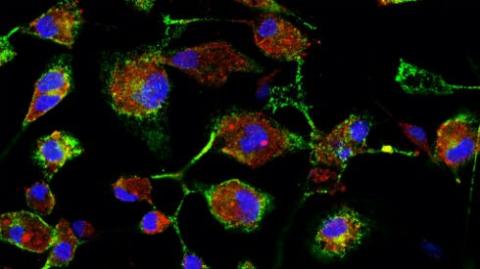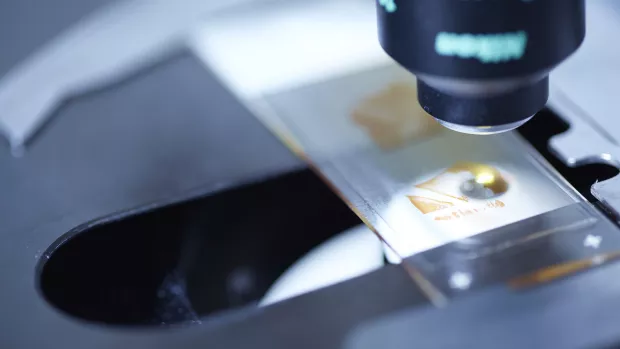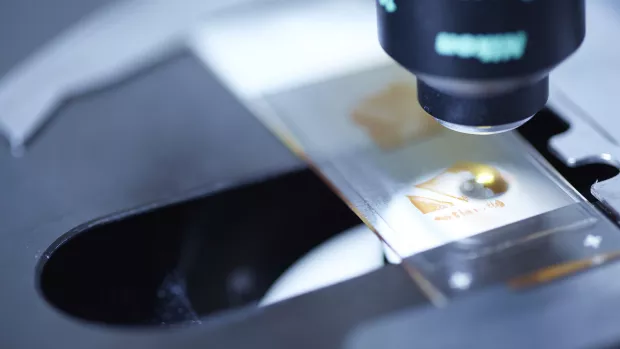Do microglia immune cells produce useful targets for myelin repair?

- Lead researcher:
- Dr Veronique Miron
- Based at:
- Edinburgh University
- MS Society funding:
- £94,725
- Status:
- Complete
About the project
In MS the protective myelin coating around nerve cells is damaged and needs to be repaired by the body. As MS progresses, myelin repair becomes less efficient and damage accumulates, meaning that nerves don't function properly.
Previous work has shown that a type of immune cell in the brain, called microglia, can produce proteins and other molecules that promote myelin repair, but how many of these ‘factors’ work is not yet known. This project will investigate recently discovered factors produced by microglia and identify which are important in promoting myelin repair in MS.
We will explore how these factors work by identifying how they change the behaviour of the oligodendrocyte cells that repair myelin. We will look for these factors in brain tissue samples from the UK MS Society Tissue Bank and test candidate factors in a mouse model of MS.
How will it help people with MS?
Identifying targets that promote myelin repair is the first step to developing new treatments for all forms of MS. Finding factors involved in remyelination paves the way for developing new strategies to slow or stop the worsening of disability that results from nerve damage in MS.
The difference you can make
There are currently no strategies to slow progression in MS. Supporting research like this helps to bring us closer to reaching this goal.




